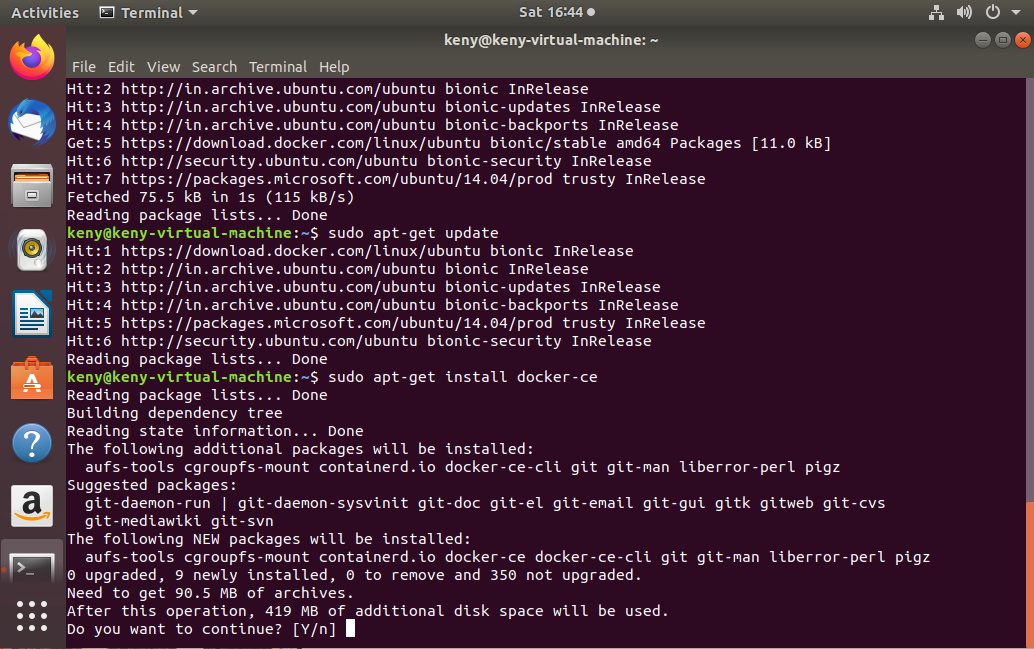MiKTeX is available for selected Linux distributions.
Installing MiKTeX on Linux involves these steps:

- Register the GPG key with which MiKTeX installation packages and metadata is signed. The key ID is:
D6BC243565B2087BC3F897C9277A7293F59E4889 - Register the installation source which contains the MiKTeX installation package. The installation source depends on the Linux distribution version.
- Use the package management system to install MiKTeX.
- Finish the setup.
- Upgrade your TeX distribution. This is an optional step.
Please click a tab to get instructions for your Linux distribution:
Alternative downloads. There are several other ways to get Ubuntu including torrents, which can potentially mean a quicker download, our network installer for older systems and special configurations and links to our regional mirrors for our older (and newer) releases. The Docker image allows you to run MiKTeX on any computer that supports Docker. You can obtain the image from Docker hub: docker pull miktex/miktex. Create a volume: docker volume create -name miktex. Provided that your main input file is located in the current working directory, you can run pdflatex as follows.
a. Register GPG key
b. Register installation source
Ubuntu 20.04 LTS (Focal Fossa):
Ubuntu 18.04 LTS (Bionic Beaver):
Ubuntu 16.04 LTS (Xenial Xerus):
c. Install MiKTeX
a. Register GPG key
b. Register installation source
Linux Mint 20:
Linux Mint 19:
Linux Mint 18:
c. Install MiKTeX
a. Register GPG key
b. Register installation source
Debian 9 (Stretch):
c. Install MiKTeX
a. Register GPG key
b. Register installation source
Fedora 33:
Fedora 32:
Fedora 30:
Fedora 28:
c. Install MiKTeX
a. Register GPG key
b. Register installation source
CentOS 8:
c. Install MiKTeX

a. Register GPG key
b. Register installation source
openSUSE Leap 15:
c. Install MiKTeX
d. Finish the setup
Before you can use MiKTeX, you have to finish the setup. You can use MiKTeX Console or, if you prefer the command line, miktexsetup.
Search&click the MiKTeX Console icon to start MiKTeX Console:
Now is the time to make a decision:


Do you want to set up a private (for you only) TeX installation, or do you want to set up a shared (system-wide) TeX installation?
You probably want to choose the first option.
The second option makes sense if you are the administrator of a multi-user system. If this is the case and if you expect that some of your users would like to work with MiKTeX, then you should install MiKTeX system-wide.
Click one of the two buttons if you have made your decision.
 Run
Run miktexsetup to finish the setupto finish with a private (for you only) TeX installation. Executables like lualatex will be installed in ~/bin.
Run
to finish with a shafred (system-wide) TeX installation. Executables like lualatex will be installed in /usr/local/bin.
Get Docker Ce For Ubuntu Command
You also may want to enable automatic package installation:
Or, if you have a shared installation:
e. Upgrade
If you have just installed MiKTeX, then you have the option to upgrade your installation to a standard TeX system. Just click the Upgrade button. Please be aware that this starts a ~200MB download.
Alternatively, you can turn on the auto-install feature and let MiKTeX install missing packages on-the-fly. This will help you to keep your TeX installation as minimal as possible (“Just enough TeX”).
Get Docker Ce For Ubuntu Usb
See also
FAQ: Is it possible to install MiKTeX and TeX Live side-by-side?
